Movie Review – Psycho
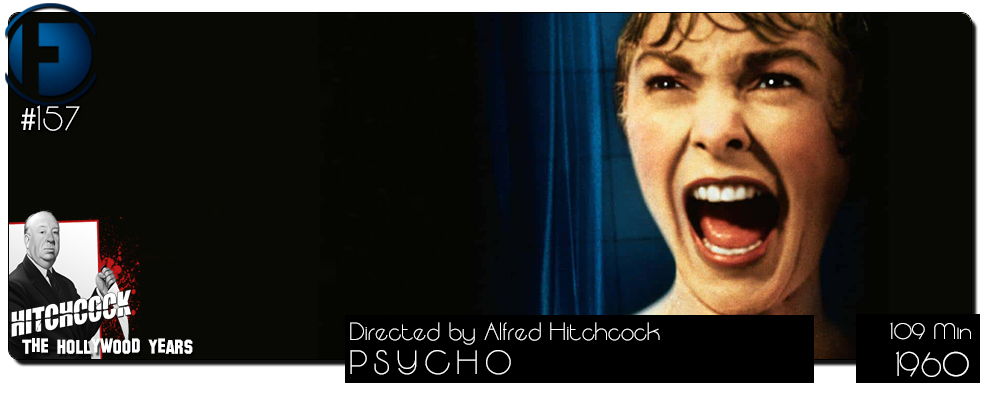
Principal Cast : Anthony Perkins, Janet Leigh, Martin Balsam, Vera Miles, John Gavin, John McIntire, Simon Oakland, Frank Albertson, Pat Hitchcock, Vaughn Taylor, Lurene Tuttle.
Synopsis: Marion Crane, a young woman on the run from the law, stops in at a strange motel, run by Norman Bates. Watch the last shower she ever takes.
*****
One of the all-time cinematic greats, Hitchcock’s Psycho revolutionized the industry at a time when sex and murder were mutually exclusive. Risque, provocative, and unquestionably terrifying, Psycho ranks up alongside The Birds as one of the masters all time great scary movies.
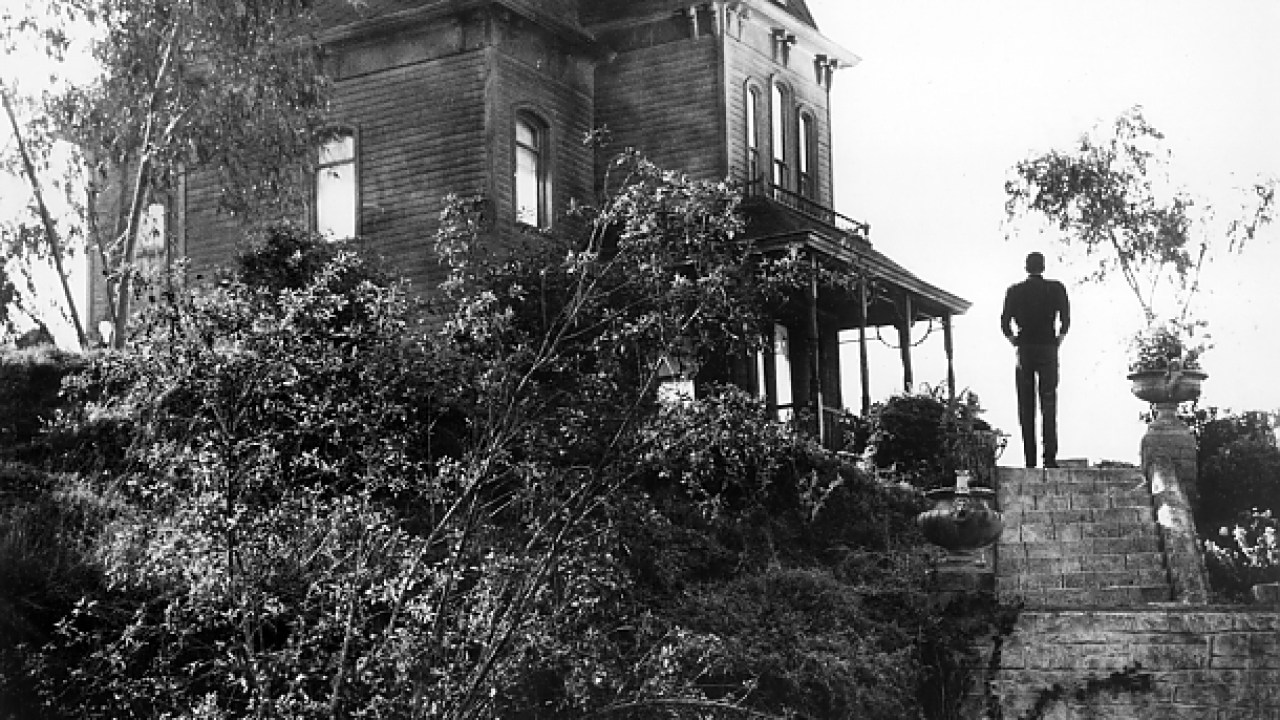
Still frightening by today’s standards, Psycho is a riveting piece of filmmaking, in gorgeous black and white photography, using some of cinemas most imitated camera angles in this ground breaking, revelation of a film. Claustrophobic, terrifying, utterly captivating, Psycho treads the fine line between glib, self assured cliché, and devastating murder/drama, in such a way that it’s since been referenced in hundreds of other films (mostly, parodies) ever since. The famous “shower scene”, in which Marion Crane is hacked to death by a vague shadowy shape, is perhaps among the top ten most famous scenes in film history, a feat that is a testament to the movie’s remarkable power.
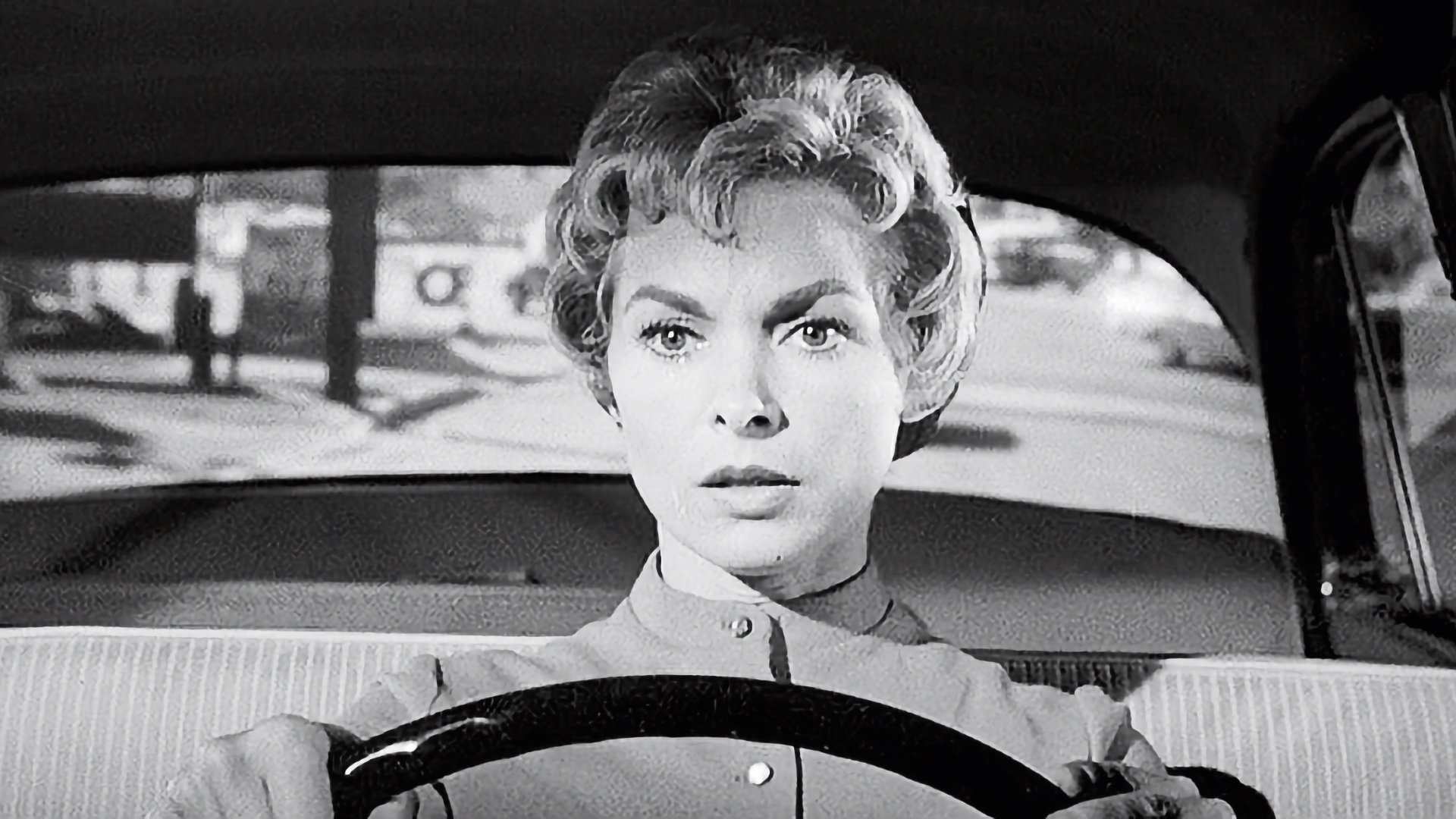
Marion Crane, a young secretary who is having an illicit affair, steals a bunch of money from her employer, and takes off across the country to escape the law. On her journey, she stops off the highway at a lonely, dark motel, owned by Norman Bates, a polite young man who assures her of her safety and privacy while she stays at his establishment. it doesn’t take long, however, for the murderous rampage of Psycho to kick in, as, while Crane is enjoying a nice post-larceny shower, she is murdered by somebody (who may, or may not be, the very man who she just spoke to, Mr Bates). Meanwhile, back in the big city, Marion’s friends are concerned, and try to track her movements, in order to locate her.
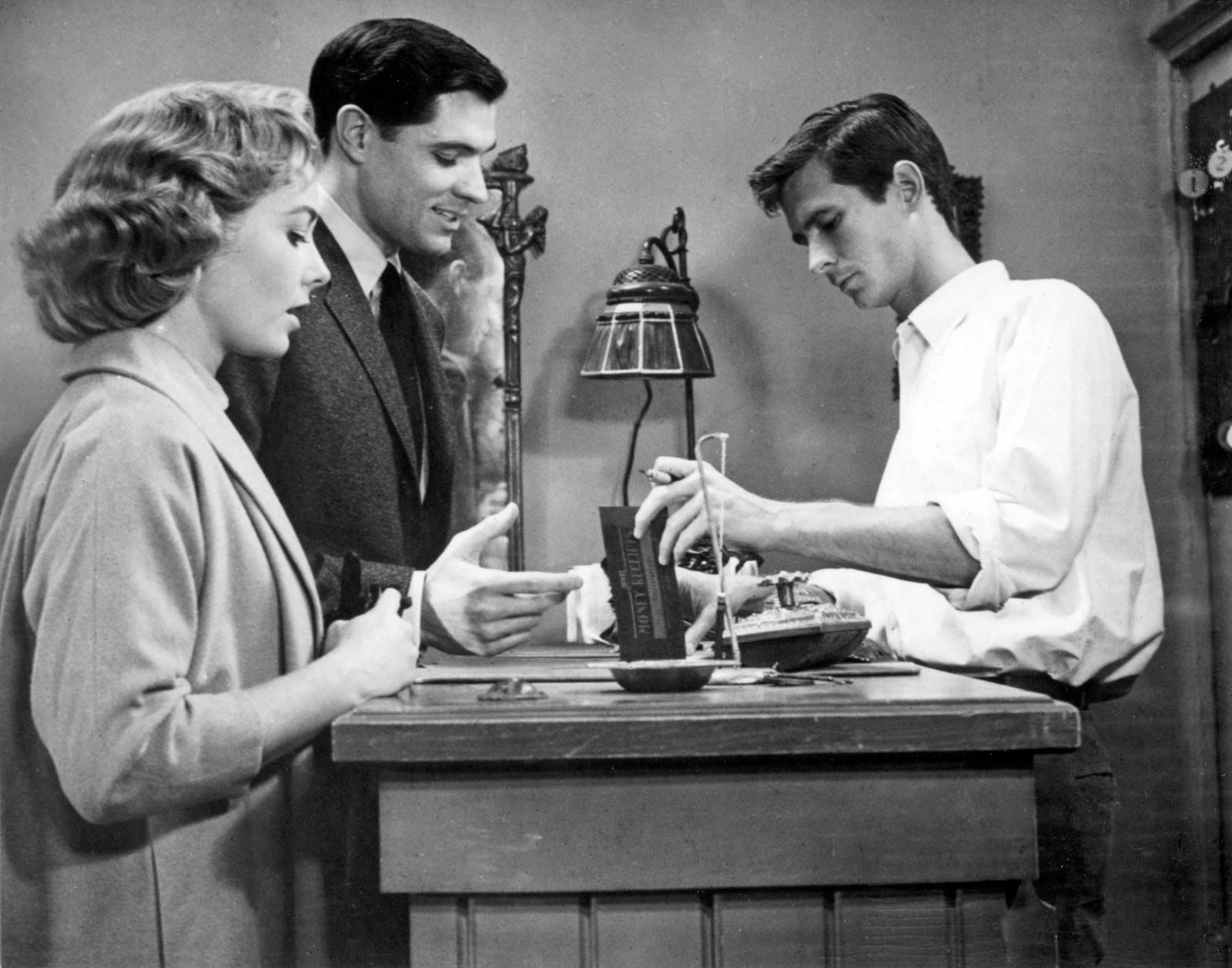
Hitchcock has crafted a delicate, intimate, sexually charged encounter in this film, the heady mix of violence and sex unusually provocative for it’s time: less so now, however, one can imagine how audiences must have felt upon watching this movie. The opening, with the long camera movement into a high-rise apartment bedroom, complete with post-coitus Marion Crane and her lover, divorcee Sam Loomis (John Gavin), is exceptionally brave, given when the film was made. The hot and heavy petting and dialogue, charged with sexual tension, is scintillating, and extremely well acted by the cast.
As we move past this preamble and into the first act, where Marion steals the cash from her boss, Hitchcock crafts a kind of heightened sense of tension, almost palpable in it’s illicit, erotic emotions simmering on the screen. Janet Leigh, as Marion Crane, is superb, her gorgeous features perfectly capturing the wide-eyed horror and thrills she must go through to make good her escape plan. There are moments, especially when the traffic policeman wakes her by the side of the road, when her paranoia almost gets the better of her. Hitchcock stings the audience along for a while, not quite sure what to make of this developing scenario, as the officer seems reticent to believe Marion’s claims that she’s okay, that there’s nothing wrong. Marion, of course, thinking the officer is aware that she’s just made off with a bundle of cash, has a near panic-attack, and eventually makes her way to the city, where she swaps vehicles (watched by the policeman again, who spots her as he drives past) and continues on her way. The way Hitchcock shoots this, the way he never cuts to the policeman’s emotional or mental POV, only serves the heighten the tensions, because we simply do not know what he’s thinking. Will she get caught with the stash of cash? Will she get away?
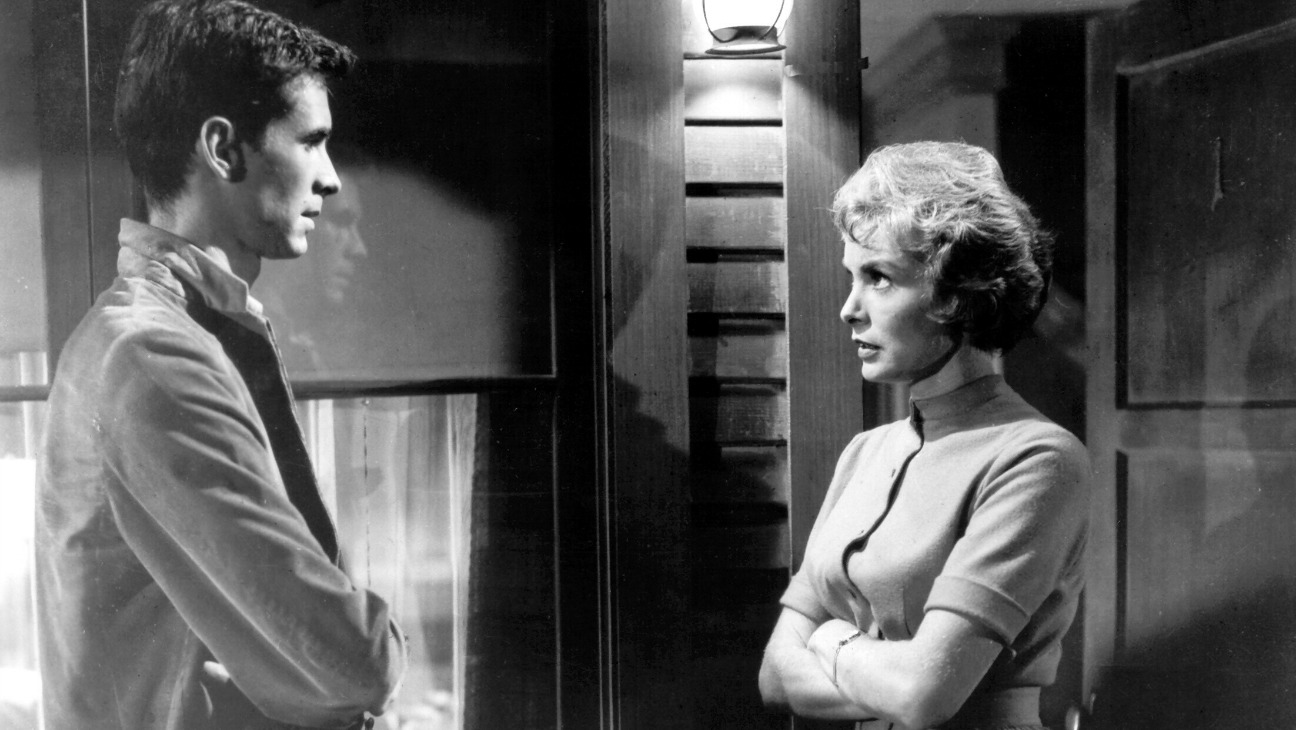
And just when we think she does, and Crane decides to come clean and return to the city with her stolen loot, she’s butchered in the Bates Motel. It’s very rare that a film will kill off one of it’s major stars and characters half way through the film, and for this reason the audience is taken aback a little, shocked almost to find somebody they’d come to know and empathise with suddenly hacked to death and dumped in a swamp. For this reason, I think, the second act of the film is either more potent, or strangely emotion-free, depending on your point of view. If you’ve identified with Marion Crane, you’ve become emotionally invested in her and her story, only to see it stop suddenly, you may find it difficult to suddenly jump to the secondary story in the film, that of Marion’s sister, and lover, searching for the slain woman. Their search is a far inferior storyline for the film, given all that has come before it; however, their dedication to Marion is such that both Vera Miles, as the sister, and John Gavin as Mr Loomis (Marion’s lover) are convincing, yet somewhat flat by comparison. Martin Balsam plays the private investigator, Arbogast, as a kind of Sam Spade-lite, suspicious yet not quite giving the character the element of danger perhaps required of somebody so close to finding out the truth. Arbogast questions Bates a few times, gradually wearing down the calm exterior of the motel owner, until there is an almost tangible element of danger to the PI, something the audience can only guess as to how it will resolve itself.
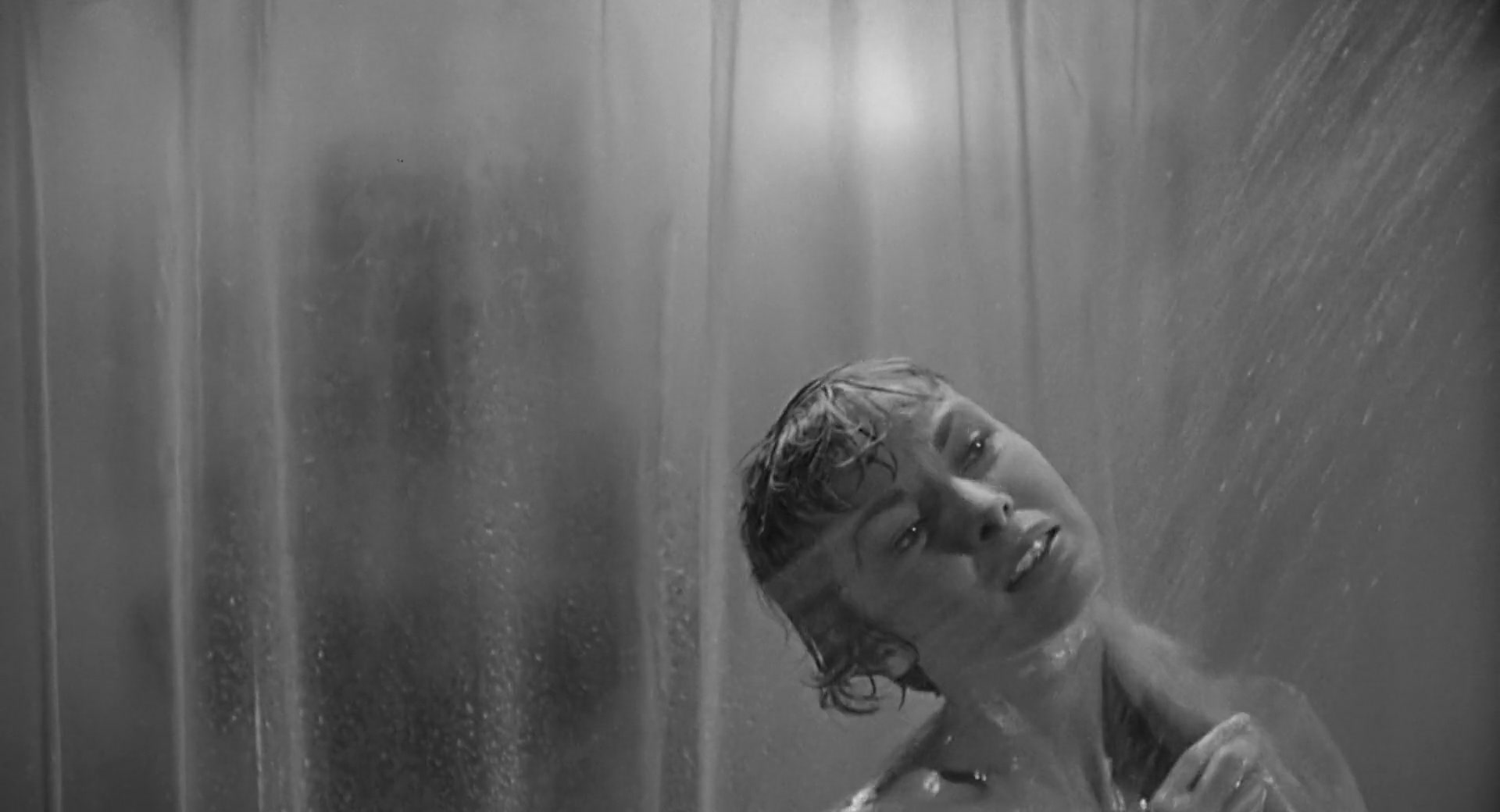
The effect this film has had on modern pop culture and cinema is not to be underestimated. Plenty of ink and copy has been written about Psycho, the way it was filmed, the camera angles and the music. Speaking of music, I found out recently that apparently, Hitchcock did not want the iconic shower sequence to play with any music, merely using only foley and ADR sound to ramp up the tension and sheer horror. Composer Bernard Herrmann asked Hitch to play the scene with a music cue he had written (the famous screech screech violin motif) and Hitchcock found it added an extra layer of power to the scene. Herrmann’s score for Psycho is one of cinema’s most enduring. Everybody knows the central theme, even if they haven’t seen the full film. Which is a pity, because there’s more to Herrmann’s score here than just the eee eee eee moment, sending shivers up viewers’ spines ever since. While made up of predominantly strings, such as violins and cellos’, Herrmann’s score is replete with vibrancy and tensions, as almost every cue merely serves the heighten the tension. The off-key soundtrack seems to give us the heebie-jeebies, coupled with the stark, moody black and white cinematography, and you have the perfect recipe for a nightmarish film that tapped into the psyche of an entire generation of audiences.
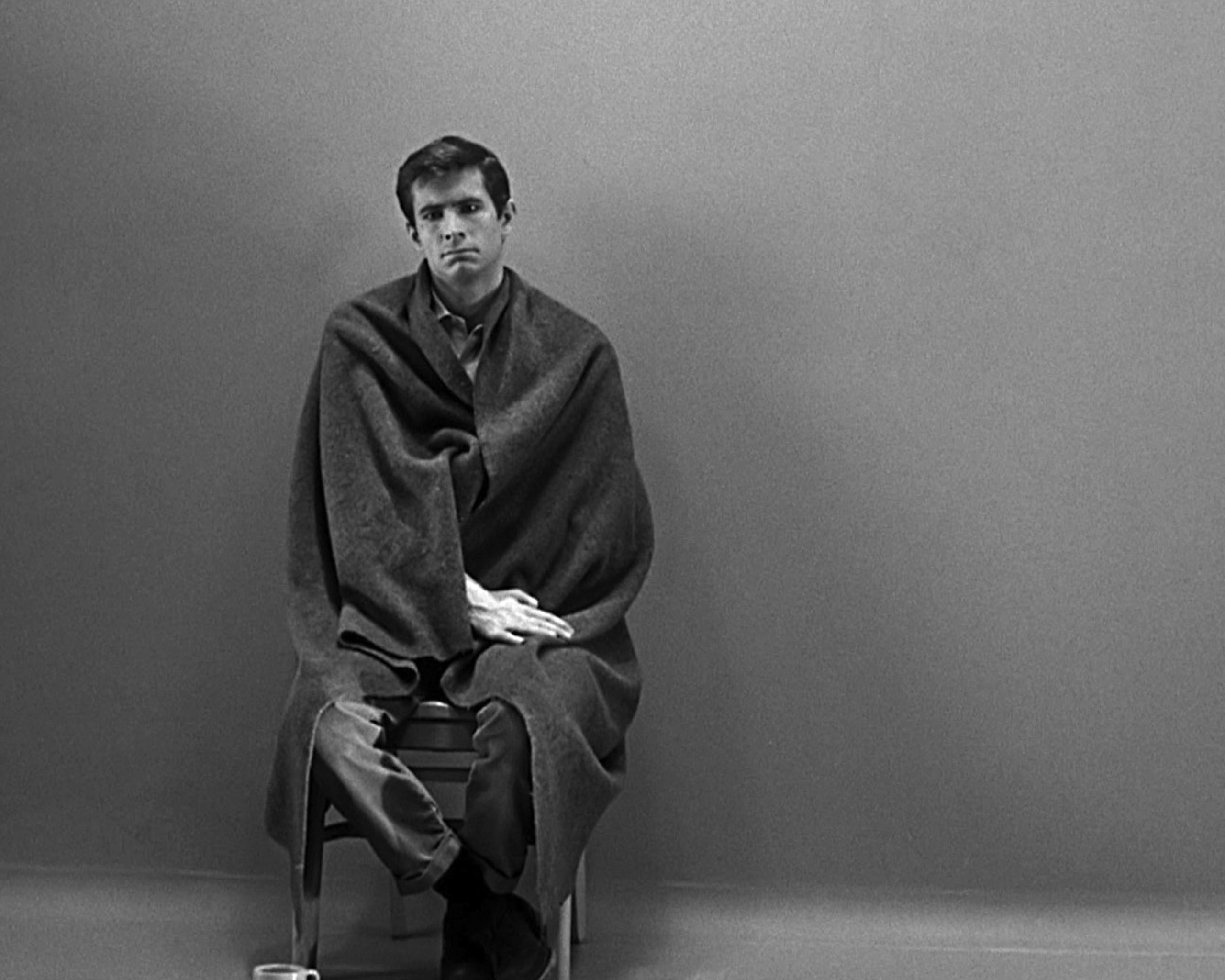
If you asked a hundred different people to name the top five Hitchcock films, you’d probably get a hundred different responses, however, it’s a fair bet that Psycho would remain in all of them: it’s Hitch’s masterpiece and enduring legacy, for which film-makers around the world can be thankful. And deservedly, a true classic.

First saw this on TV one night when I was about 15/16. Thought the scariest moment was at the very end, when Norman looks up at the camera and Hitch briefly (12-16 frames maybe) superimposes part of a skull on his face. Now that was spooky ….
Yeah, I definitely like the new -Summary- section. Works well 😀
Agreed, mate, looks good.